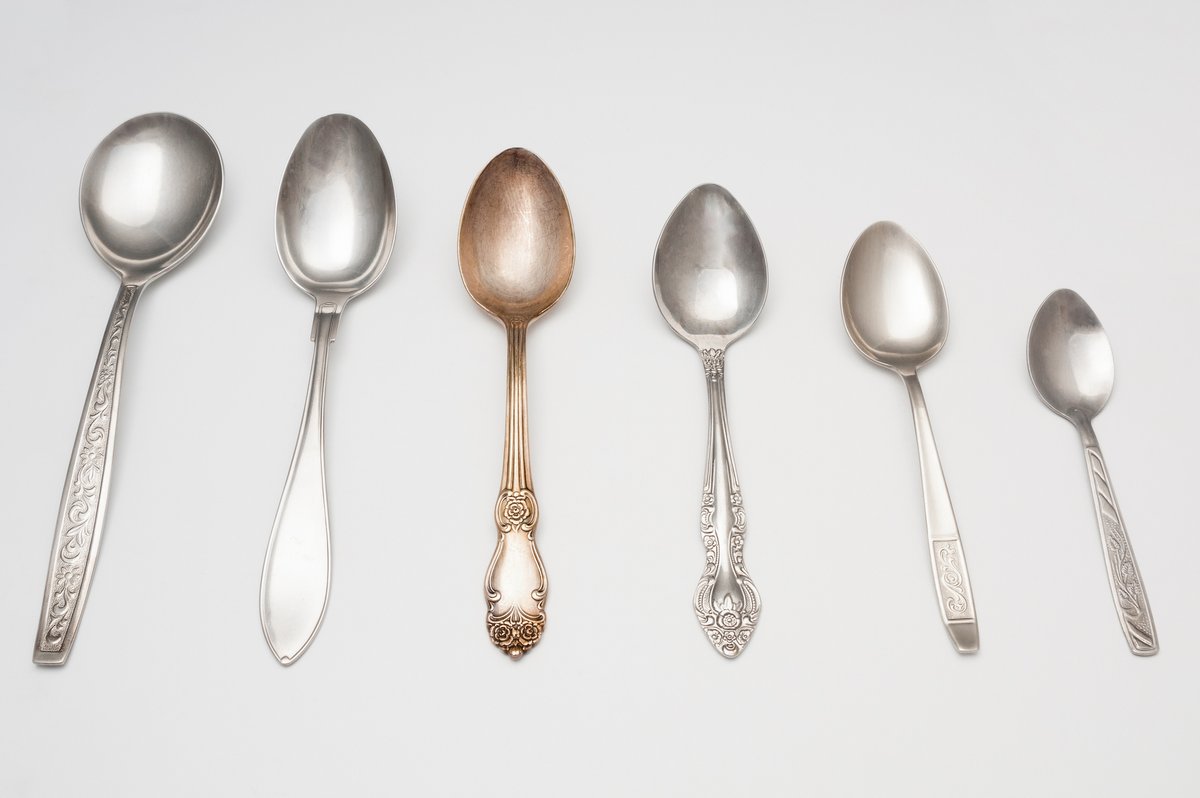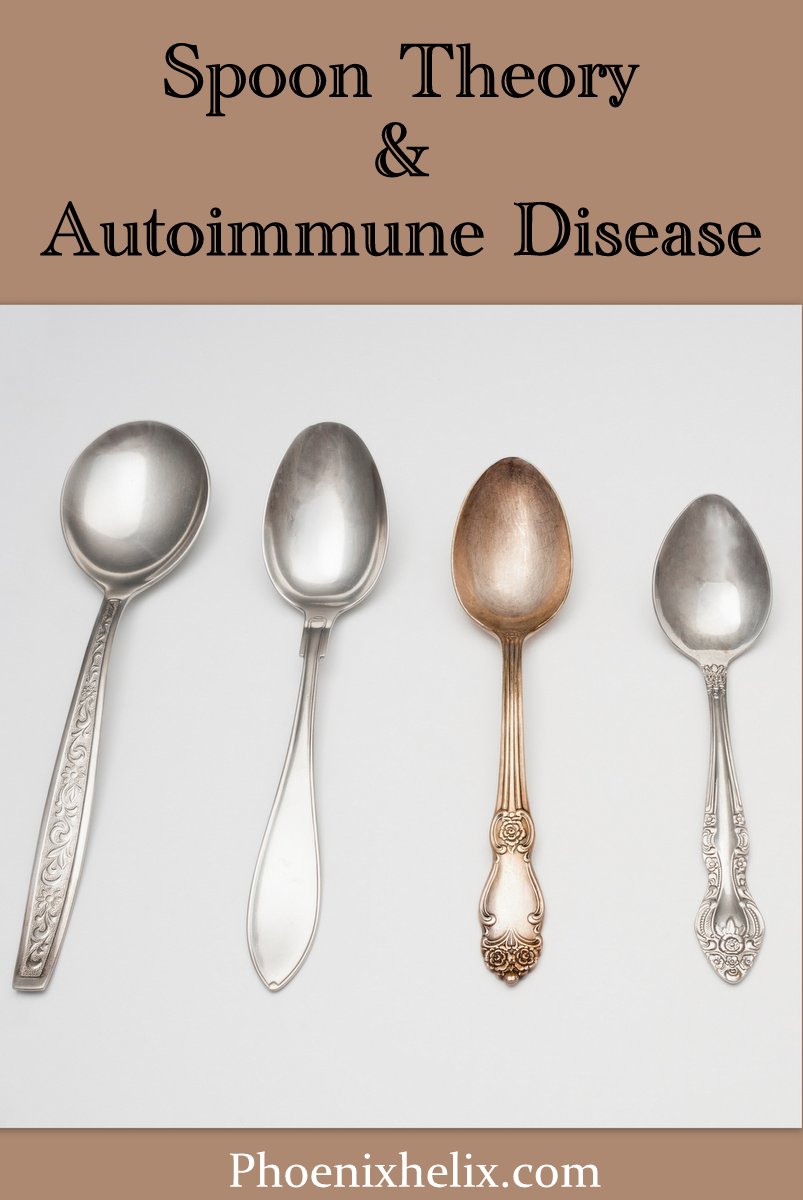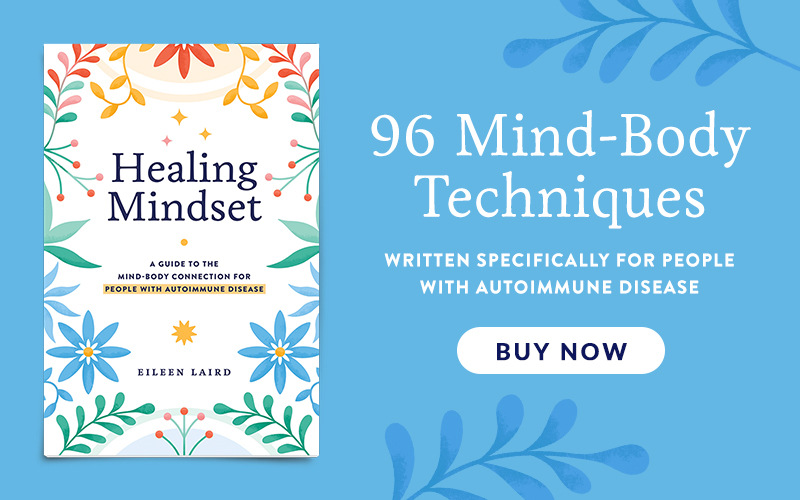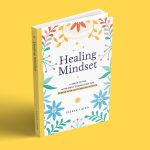
“Behind every chronic illness is just a person trying to find their way in the world.”
~ Glenn Schweitzer
What Is the Spoon Theory of Autoimmune Disease?
In a nutshell, it’s a metaphor to explain the experience of living with chronic illness. It was created by Christine Miserandino, a woman living with lupus. She was at a restaurant with a friend, and her friend wanted to understand Christine’s experience better. What did it feel like to be sick with an invisible illness?
Christine looked around the restaurant, gathered 12 spoons, and gave them to her friend. She explained that healthy people start their day with unlimited possibilities and the energy to do whatever they desire. But Christine started the day with a limited amount of energy, represented by those spoons. She had to carefully choose where to spend that energy. Every task took a spoon, and hard tasks took multiple spoons. She was never able to do everything she wanted to do. Some days, just getting out of bed, eating breakfast, taking a shower, and getting dressed would use half her spoons for the day. Other days, she woke up with enough energy to accomplish some tasks, or do something fun, but she always had to make choices.
Here’s how Christine described it: “When other people can simply do things, I have to attack it and make a plan like I am strategizing a war. It is in that lifestyle, the difference between being sick and healthy. It is the beautiful ability to not think and just do. I miss that freedom. I miss never having to count spoons.”
She published The Spoon Theory on her blog in 2003, and it went viral. It’s been popular ever since. Many people with chronic illness now call themselves Spoonies, and it’s also a popular hashtag on social media.
What I Love About the Spoon Theory
Christine’s blog is called, But You Don’t Look Sick. Does that phrase sound familiar? Have people said that to you? It’s the tagline for invisible illness. So many of us walk through the world with challenges people cannot see. That makes it hard for others to understand or even believe us. The Spoon Theory helps people peek inside the experience of chronic illness. It can generate understanding, empathy, connection, and respect, and those are beautiful things.
What’s Missing From the Spoon Theory
The Spoon Theory captures the challenge of a life with chronic illness, but the theory is incomplete. It assumes we have no ability to increase the number of spoons we have. That doesn’t match my experience. While there is no cure for autoimmune disease, the choices we make every day can have a powerful impact on how we feel. So, while I love the Spoon Theory, I want to expand the conversation to talk about how we get more spoons.
Ten years ago, rheumatoid arthritis hit my life like a wrecking ball. I was living with excruciating pain so high that it didn’t feel like I had any spoons at all. I was overwhelmed, terrified, and disabled by the pain, but I was also inspired. When life breaks us down, it can also crack us open. Healthy habits that seemed impossible before, now seemed easier than the life I was living. I was willing to try anything if it might help me feel better. So, I started experimenting with anti-inflammatory diet, lifestyle, and mindset practices. The result is that I started gaining spoons, slowly at first and cumulatively over time.
That doesn’t mean I’m in complete control and now have infinite spoons. Rheumatoid arthritis is still part of my life. I need more rest and self-care than I did prior to my diagnosis, and even with an empowered approach, I’ve learned that some autoimmune flares cannot be prevented. But my daily choices have made those flares far less frequent and less severe, and I have many high-spoon days. I also no longer feel at war with my body. Instead, I try to befriend my body, listening to the messages it sends me, and gathering as many spoons as I can.
Stock up on Spoons for Autoimmune Health
- Begin with mindset. Open yourself to the possibility of feeling better.
- Experiment to find what makes a difference for you. If you try one intervention, and it doesn’t help, don’t assume nothing will. There are many ways to support your health.
- Leave perfectionism behind. Small improvements matter, and they also add up over time. Celebrate every spoon gained!
- Food matters. Some foods increase inflammation in our bodies, while other foods give us the nutrition we need to thrive. Start by reducing packaged foods and incorporating more nutrient-dense, real foods in their place. (Resource: 10 Superfoods for Autoimmune Health.)
- Prioritize sleep. Sleep can be a challenge when you have autoimmune disease. Symptoms can interfere with sleep, and lack of sleep can cause autoimmune flares, creating a vicious cycle. Don’t give up. There are ways to improve your sleep, even with autoimmune challenges. (Resource: Advanced Sleep Troubleshooting.)
- Find a favorite mind-body technique. Stress is a common trigger of autoimmune flares, so managing stress is essential to living well with autoimmune disease. Meditation is wonderful, but it’s not the only way to achieve this goal. I wrote a book with 96 techniques you can try. (Resource: Healing Mindset: A Guide to the Mind-Body Connection for People with Autoimmune Disease.)
- Gently detoxify. Modern life exposes us to more toxins than our bodies were designed to handle, and people with autoimmune disease often benefit from extra support. You don’t need expensive supplements or chelation protocols. In fact, those often leave people feeling worse instead of better. There are simple ways to support our bodies naturally. (Resource: Detoxify Series.)
- Move your body in pain-free ways. Exercise intolerance is a common side effect of autoimmune disease, where strenuous exercise causes autoimmune flares. If you’re living with chronic pain, all movement may feel beyond your abilities, yet research shows that movement improves autoimmune health. So, what do you do? There are styles of movement that are especially helpful to people with chronic illness. (Resource: Exercise Series.)
- Ask for help. We cannot do everything ourselves, and we burn out quickly when we try. Yet many of us pride ourselves on our independence and feel flawed if we ask for help. You’re not flawed – you’re human. Our lives are meant to be a blend of giving and receiving. (Resource: How to Ask for Help.)
- Seek joy. Chronic illness can feel overwhelming, and joy might feel beyond your reach, especially if you can no longer do activities you loved in the past. Grief is part of the autoimmune experience, and that’s something we need to feel. But it’s also important to seek joy in new ways. We cannot live a full life without it. (Resource: Cultivating Joy.)
- Medication isn’t failure. Many people in the alternative health community hope to avoid autoimmune medication. Sometimes that’s possible, but other times it’s not. It’s never a failure if you need medical help. Autoimmune disease can be both serious and life threatening, and we’re lucky to live in a world where medication is available. Integrative medicine is the combination of the lifestyle changes discussed in this article alongside medical treatment. It doesn’t have to be an either/or choice, and sometimes medication is the key to gaining more spoons. (Resource: Medication Decisions.)
Autoimmune Flares: Low Spoon Days
When we have an empowered approach to autoimmune health and do everything we can to support our bodies, it can feel disheartening if a flare comes anyway. Please know this: flares aren’t failures, and spoons don’t measure your worth. We cannot set perfection as the goal. What our bodies and souls need most on these days is compassion. Here are five ways to support yourself on a low-spoon day:
- Narrow your to-do list down to the essentials. Postpone anything you can, and if your health requires you to cancel commitments, give yourself permission to do that.
- Rest and rejuvenate. Sleep is one way, but it’s not the only way. Choose something that’s rejuvenating for you. Is it a nap? Is it a bath? Reading a novel? Watching a comforting tv show? Relaxing outside? Snuggling up with a person or a pet that you love? If you’re able to stay home today, that’s ideal, but if that’s not possible, find moments to rest today wherever you can.
- Eat something easy and nutritious. It can be hard to find energy to cook on low-spoon days. Here’s a hack to consider in the future. On high-spoon days, cook a large meal and freeze it in individual portions. Those can be your emergency meals that you can pull out on low-spoon days. For today, choose a meal that cooks quickly or doesn’t require any cooking at all. If your fridge and pantry are empty, is there someone in your life who would be willing to make you a meal? This is an opportunity to practice asking for help.
- Laugh and cry. Sometimes we try to be “strong” when we’re suffering, ignoring and hiding our sadness. But repressed emotions tend to get stronger instead of weaker, and they can increase our physical symptoms too. So, allow yourself to grieve. Tears can be healing. Tears also open us up to joy, because emotions are a package deal. When we repress one, we repress them all. So, after you’ve cried, see if you can find a reason to laugh too. Do you have a favorite comedian? Comic strip? Sit-com? Or a person or pet who makes you laugh? Laughter reminds us that a flare doesn’t define our whole world, and there can be joy even in the middle of pain.
- Practice self-compassion. With autoimmune disease, we often have a complex relationship with our bodies. When our immune system attacks, it can feel like a war within, and it’s common to hate our bodies in those moments. However, since we live in our bodies, that hatred ends up being directed toward ourselves. Self-compassion is a beautiful mind-body practice that acknowledges the suffering we are experiencing, and treats it with kindness. If you aren’t familiar with this technique, I have a podcast that describes it in detail and includes a guided self-compassion meditation toward the end. (Resource: Episode 80: Self-Compassion.)
Don’t Compare Your Spoons to Anyone Else
If you google “Spoon Theory”, you’ll find many charts showing how many spoons certain activities take, like showering, cooking, exercising, going out with friends, etc. These charts make no sense to me. They assume chronic illness is a universal experience, where we all have the same number of spoons, symptoms, and abilities. That’s the opposite of reality. Everyone is unique, even when we share the same diagnosis. In addition, our own health usually varies from day to day. For example, on a good day, showering might not take any spoons. It might give you energy instead. Whereas on a challenging day, showering might take five spoons, and you might decide it’s not worth it. So, ignore the charts and tune into your own body’s needs instead. Each day, determine how many spoons you have, how you want to spend them, and how you might gain an extra spoon that day.
It’s also tempting to compare your experience to others, feeling jealous if someone seems to have far more spoons than you. Remember, we cannot see inside each other’s bodies, so the only experience we truly know is our own. It’s very rare for someone’s inside to match what you see on the outside. This is especially true on social media, but it’s also true in real life. This goes back to the very idea of invisible illness. It’s why the Spoon Theory was created in the first place. It’s much more powerful to focus on ourselves. What can you do today to be kinder to yourself? How can you support your health today? And when it comes to other people, who lifts you up? Prioritize spending time with them, and strive to lift them up as well.
You May Also Be Interested In
Credit: image at top of page purchased from iStock.









